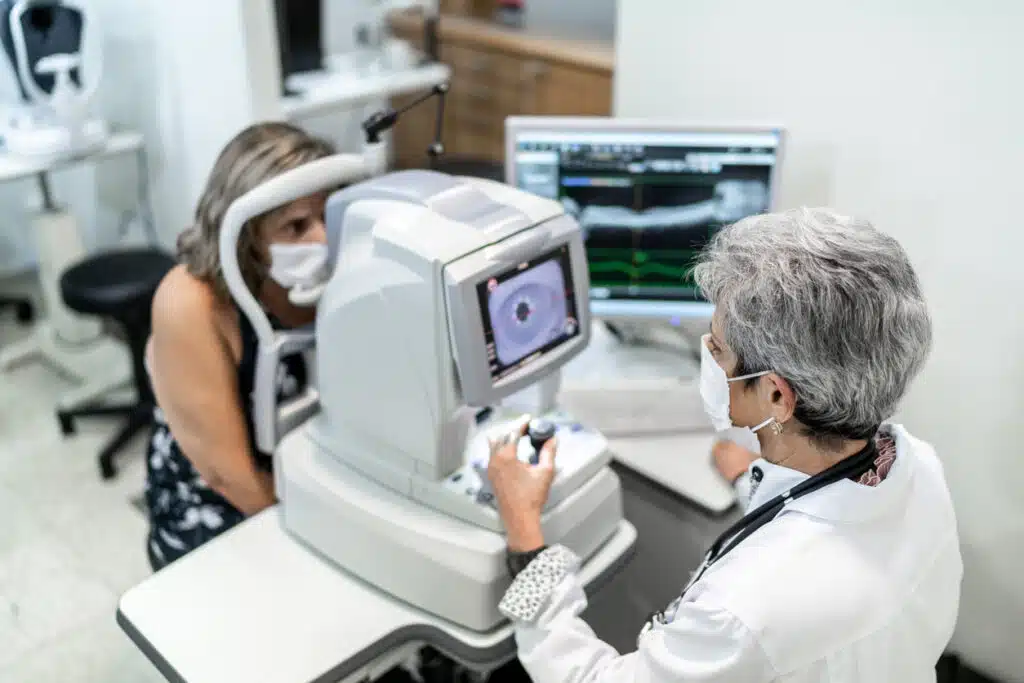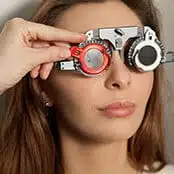
Many factors contribute to the deterioration of someone’s vision. It may be due to aging, overuse or overexposure to radiation, or other medical conditions. Hence, even though it may be a little intimidating, visiting an eye clinic is a must for everyone.
But what exactly do they do at these clinics? Let’stalk about what you can expect when visiting an eye clinic and where you can go for comprehensive eye care in Washington, MO.
Different Types of Eye Exams
Eye clinics conduct the following tests:
1. Visual Acuity Test
This test measures your vision’s clarity by making you read, from a distance, a chart with letters. These characters get smaller as you move down.
2. Corneal Topography Test
Your cornea is measured and mapped out using a computer. It helps detect corneal disorders, such as astigmatism, and helps determine your need for corrective lenses or surgery.
3. Refraction Assessment
You will look through an auto refractor device, which shines light into your eyes to determine if the light will focus. If it doesn’t, this suggests a refractive error, one of the bases your doctor will use for your lens prescription.
4. Visual Field Test
A visual field test or perimetry may happen in several ways. But the goal is to determine how much you can see in your peripheral and overall vision.
5. Color Vision Test
This test helps diagnose color blindness. You will view a series of colored dots with hidden numbers, and failing to see these characters may suggest the condition.
6. Slit-Lamp Exam
A slit-lamp exam requires you to receive special eyedrops. Your doctor will examine the parts of your eyes in high magnification through a microscope.
7. Retinal Exam
Similar to a slit-lamp exam, a retinal exam or ophthalmoscopy requires eyedrops for your pupils to dilate. Then, your doctor will shine a light into your eyes to examine its parts and the surrounding nerves.
What to Expect When Going for an Eye Exam
Here’s what you can expect regarding eye exams:
Before
When going for an eye exam, you need to prepare certain things beforehand. If you have been using any eyewear, bring them to help your doctor provide a more accurate prescription.
Your specialist will also review your medical history. You should prepare your answers to the following questions:
- What eye problems have you experienced in the past or have now?
- What other medical conditions do you have?
- Do you take any medication or substances?
- Do you have any allergies?
- Does your family have a history of diabetes, hypertension, or other health concerns?
During
You don’t need to undergo all the eye exams mentioned above. It will depend on your condition and the discretion of your doctor.
Your visual acuity will determine if you need corrective eyewear or an upgraded version if you already have one.
Then, your doctor will measure your intraocular pressure with an eyedrop. Damaged optic nerves from fluid pressure risk you suffering from glaucoma, which in the long run can lead to blindness.
You may need further examination to determine the overall health of your eyes.
After
Your provider will discuss your assessment results, treatment, or preventive measures after the exam. If you need a pair of glasses or contact lenses, you may need to take measurements and get them another day.
If you underwent an eye dilation, you should not drive, read, or look at a screen for a few hours. You may experience increased sensitivity to light until your pupils finally shrink to normal.
Instead, ask someone to pick you up or accompany you going home.
When to Visit an Eye Clinic
A regular eye exam aims to detect any vision problem you may have. The earlier it is detected, the earlier you can receive corrective treatment to prevent it from worsening.
You can visit an eye care center near you whenever you need it. You should also consult a doctor if:
- You have blurry vision
- Your eyes are too dry or too moist
- You are starting to lose your vision
- You have reached the 40-year-old mark
Eye Clinic in Washington, MO
Be proactive in taking care of your vision and visit a trusted doctor. Do you need an eye clinic near you in St. Louis, Missouri? You can receive comprehensive eye care at Advanced Sight Center. We have credible and compassionate ophthalmologists and optometrists committed to helping their patients live with better vision and eye health.
To know more, call us today at (636) 239-1650. You may also use our online request form to schedule an appointment with an eye specialist near you. We endeavor to become an eye clinic you can run to and trust.



